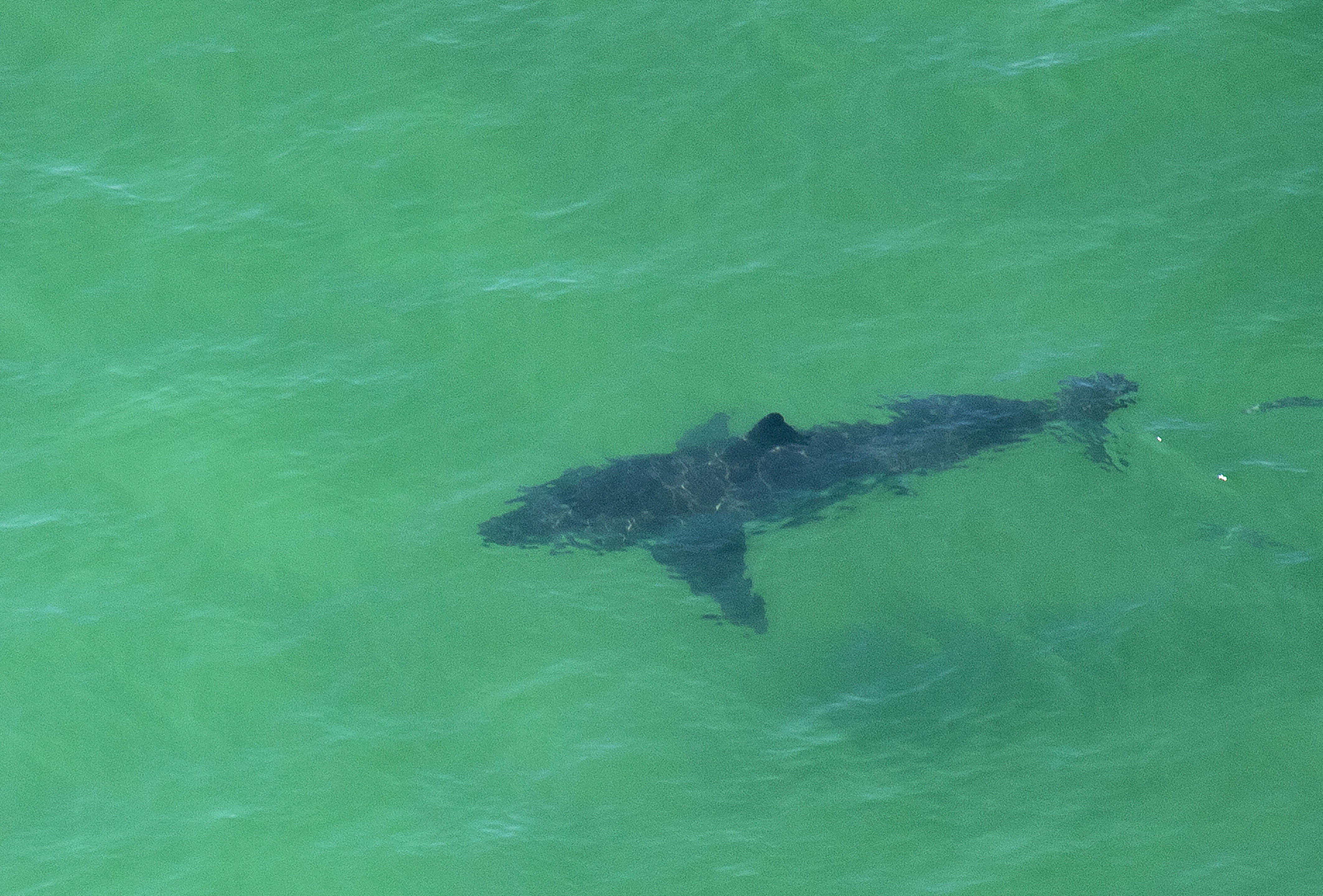Great white shark population off coast of California increased by as much as 35%, study finds
Researchers monitored great white shark population in California between Monterey Bay, the Farallon Islands and Bodega Bay

Your support helps us to tell the story
From reproductive rights to climate change to Big Tech, The Independent is on the ground when the story is developing. Whether it's investigating the financials of Elon Musk's pro-Trump PAC or producing our latest documentary, 'The A Word', which shines a light on the American women fighting for reproductive rights, we know how important it is to parse out the facts from the messaging.
At such a critical moment in US history, we need reporters on the ground. Your donation allows us to keep sending journalists to speak to both sides of the story.
The Independent is trusted by Americans across the entire political spectrum. And unlike many other quality news outlets, we choose not to lock Americans out of our reporting and analysis with paywalls. We believe quality journalism should be available to everyone, paid for by those who can afford it.
Your support makes all the difference.The number of great white sharks spotted off the coast of California has increased by as much as 35 per cent within the last 10 years, researchers said.
A study, published in Biological Conservation this month, involved researchers monitoring the great white shark population in California between Monterey Bay, the Farallon Islands and Bodega Bay – an area often called “the red triangle”.
Researchers found that there has been a modest increase of the great white shark population over the last 10 years, indicating improved ocean conditions off the coast of California.
“A healthy population of white sharks means there are healthy populations of the sea lions and elephant seals they eat,” said Paul Kanive, a marine ecologist with Montana State University and lead author of the study, when speaking to Mercury News. “And that means that the lower levels on the food chain, like fish, are healthy enough to support the marine mammals.”
This study involved researchers from Stanford University and the Monterey Bay Aquarium working in boats from 2011 to 2018 in areas of the Southeast Farallon Island, San Mateo County coast, and Tomales Point.
Marine biologists would then lure sharks to the boat with seal meat in the water so that they could photograph the animal’s top fin, known as the dorsal fin. Each shark has a unique dorsal fin, making it easier for researchers to track the population’s numbers.
This method allowed for researchers to estimate that about 300 adult or sub-adult great white sharks lived in the area around Monterey Bay, California, in 2019, which was an increase from the 211 reported in 2011.
“Importantly, our results are indicative of a relatively small group of white sharks (<300 individuals) along with evidence that the adult demographic appears to be stable or slightly increasing; however, the possibility of decline cannot be definitively ruled out,” the study states.
More research was needed to determine if the animal population was actually increasing, but researchers said this shows early signs that an improved ecosystem in the ocean has led to the increase.
Reasons why the population could be increasing in California can be tracked all the way back to when President Richard Nixon signed the Marine Mammal Protection Act in 1972, which ended the hunting of animals that sharks eat, such as sea lions, seals, and elephant seals.
California voters have also taken several steps to help sea life near the coast, including voting to make it illegal in 1994 to hunt sharks in state waters up to three miles off the coast.
“The results of this study suggest recent favorable management in California … may be contributing to a pathway for the positive population growth for this important marine top predator,” the study states.
Although the news of more sharks off the coast of California could be worrying to some people, researchers have said the increase has not indicated that more shark attacks will happen.
Join our commenting forum
Join thought-provoking conversations, follow other Independent readers and see their replies
Comments